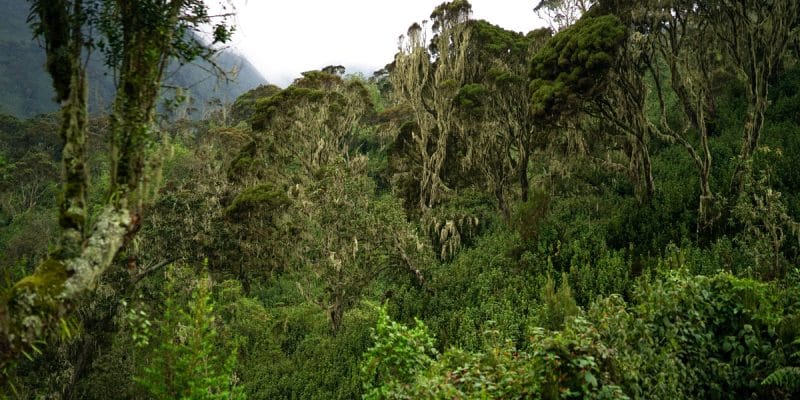The Rainforest Alliance environmental organization and traditional leaders in Cameroon's Grassfields region have agreed on ways to strengthen protection around the sacred forests of the western highlands. Although reserved for those initiated in the Bamileke tradition, these last forest bastions of western Cameroon are now under heavy human pressure. The sacred forests of West Cameroon have lost 60% of their area in the last thirty years.
The sacred forests of the highlands of West Cameroon are undergoing accelerated degradation. Their “sacred” character (the scene of ritual practices, shelter for totems, and access to which is reserved for initiates and dignitaries of the Bamileke tradition), is no longer sufficient to dissuade the riparian populations from any looting. They practice agriculture, hunting, illegal cutting of firewood, and the sale and occupation of plots of land.
According to data collected in this region by the environmental non-governmental organization (NGO) Rainforest Alliance, the sacred forests of the western highlands, estimated at 70 hectares 30 years ago, are no longer half that size, a loss of 60%. These heritage sovereignty areas represent the last bastions of the forest in an agricultural region where the average population density is 718.8 people per square kilometer, according to data from the mapping site DB City.com.
Protecting the forests, while respecting their sacred nature
“The sacred forests remain the only islands of conserved forest in western Cameroon. Our concern is that future generations can benefit not only from the ancestral role of these forests, but also from their ecological value and their biodiversity,” explains Nadège Nzoyem, the Central Africa director of the Rainforest Alliance. The NGO organized a consultation workshop on November 2nd, 2021 in Bafoussam, the capital of the West Cameroon region, to strengthen the protection of the sacred forests of the Western Highlands. “We are here to accompany the high chiefs to preserve their spaces. Because it is they alone who hold the ins and outs of what they call sacred forest. Our action consists of identifying the threats around these sacred forests, and accompanying the traditional chiefs in the implementation of solutions for the improvement and preservation of these spaces,” explains Jacques Waouo, team manager at the Rainforest Alliance.
The actions decided upon during the consultation workshop with traditional leaders are limited to raising awareness of the populations living near sacred forests, as well as the registration of these forests, in order to prevent the further sale of plots of land within them. For the ten or so traditional chiefs present at the workshop, any accompaniment consisting of penetrating the sacred forest is inadmissible. “Opening these places to outsiders would mean trivializing the traditional mysticism of the Bamileke people,” warned Jean-Rameau Sokoudjou, the traditional chief of the Bamendjou.
Read also-CAMEROON: CEW seeks an expert for the evaluation of the Ngog-Mapubi forest
This activity is part of the Cameroon Community Landscape Promotion and Management Project (COBALAM). Extended over the period 2020-2025, the project is funded by the Global Environment Facility (GEF). It is implemented by UN Environment and the Cameroonian Ministry of Environment, Nature Protection and Sustainable Development (MINEPDED), with the technical partnership of the Rainforest Alliance. It aims to conserve biodiversity in the western highlands and southern region of Cameroon.
Boris Ngounou







